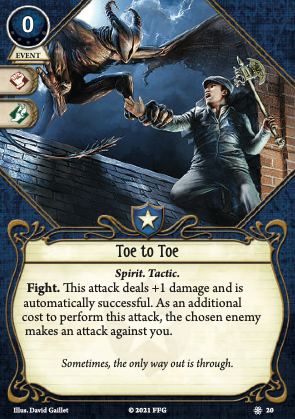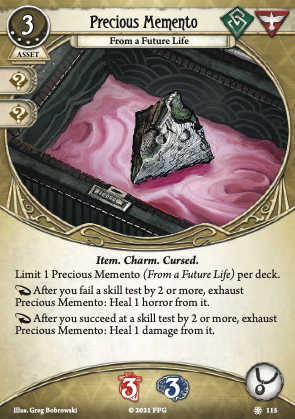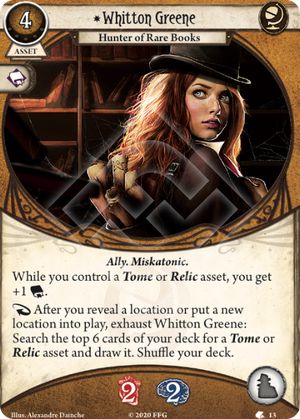
Daniela can use Toe to Toe on health damage enemy to instantly obliterate it without touching the chaos bag, by having the additional cost go to her Guard Dog. Spilled horrors can go to Precious Memento (Former Life) and spilled damages on Daniela if enemy hits harder than 1 damage required for the dog. Dog bites for 1 damage. Dog is considered "you". She is angry her dog is hurt and auto-whack for 1 damage. Then this Toe to Toe fight deals 2 damages, to the total of 4 damages which should kill most annoying enemies. The dog gets Bandages. Memento can be restored perhaps with Relic Hunter + Bangle of Jinxes to help over-succeeding, which would got jinxed as a part of Toe to Toe. The test to over-succeed can be the next Fight or Earthly Serenity (4), which its difficulty is 0 vs Daniela's 4 , which would also restore some chip damages/horrors off Daniela taken while distributing leftovers from the dog and the stone. Handy!
(This combo also needs only 2 packs : Revised Core and EotE Investigator.)



